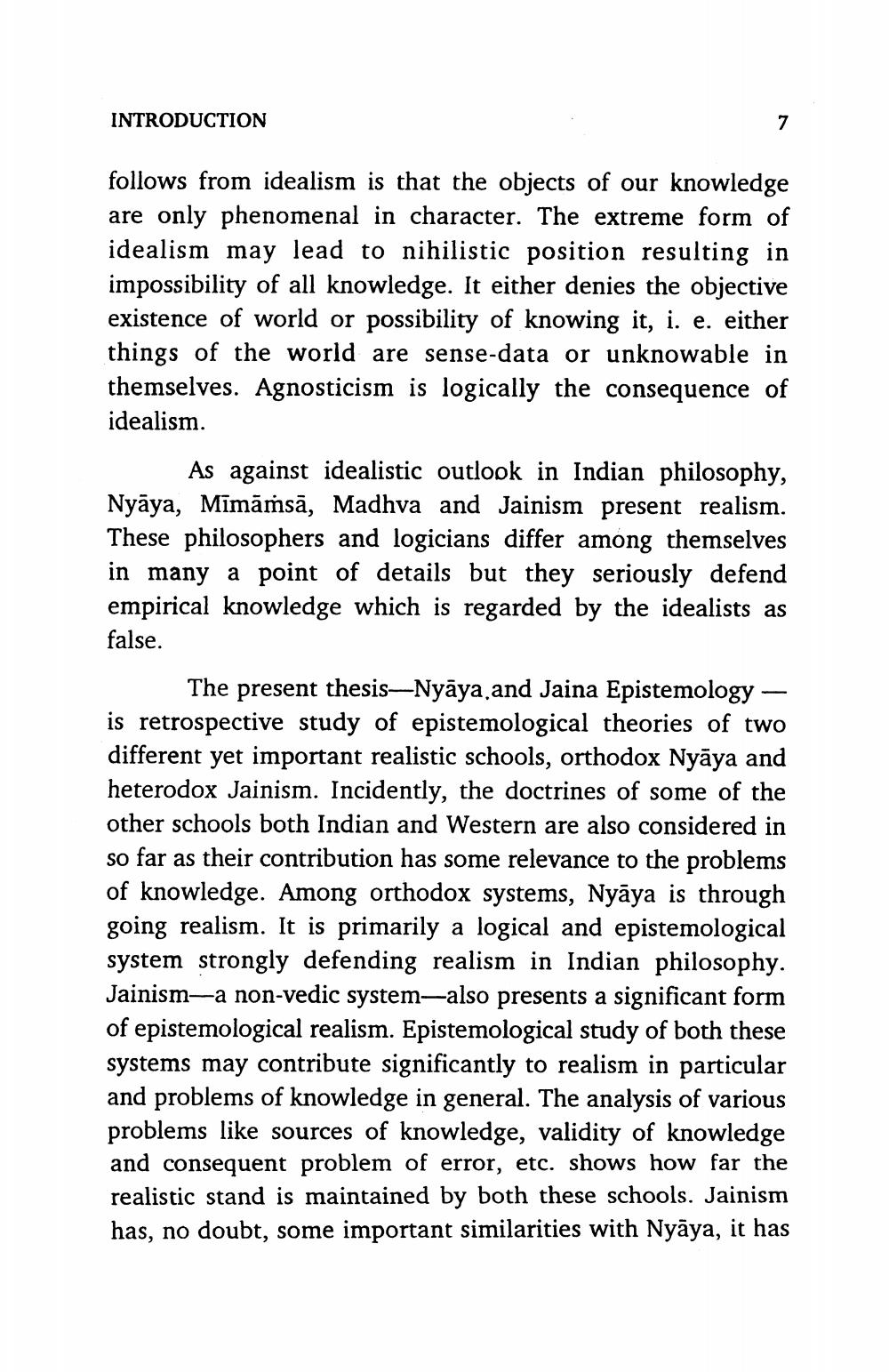________________
INTRODUCTION
follows from idealism is that the objects of our knowledge are only phenomenal in character. The extreme form of idealism may lead to nihilistic position resulting in impossibility of all knowledge. It either denies the objective existence of world or possibility of knowing it, i. e. either things of the world are sense-data or unknowable in themselves. Agnosticism is logically the consequence of idealism.
As against idealistic outlook in Indian philosophy, Nyāya, Mīmāmsā, Madhva and Jainism present realism. These philosophers and logicians differ among themselves in many a point of details but they seriously defend empirical knowledge which is regarded by the idealists as false.
The present thesis-Nyāya, and Jaina Epistemology is retrospective study of epistemological theories of two different yet important realistic schools, orthodox Nyāya and heterodox Jainism. Incidently, the doctrines of some of the other schools both Indian and Western are also considered in so far as their contribution has some relevance to the problems of knowledge. Among orthodox systems, Nyāya is through going realism. It is primarily a logical and epistemological system strongly defending realism in Indian philosophy. Jainism a non-vedic system-also presents a significant form of epistemological realism. Epistemological study of both these systems may contribute significantly to realism in particular and problems of knowledge in general. The analysis of various problems like sources of knowledge, validity of knowledge and consequent problem of error, etc. shows how far the realistic stand is maintained by both these schools. Jainism has, no doubt, some important similarities with Nyaya, it has




